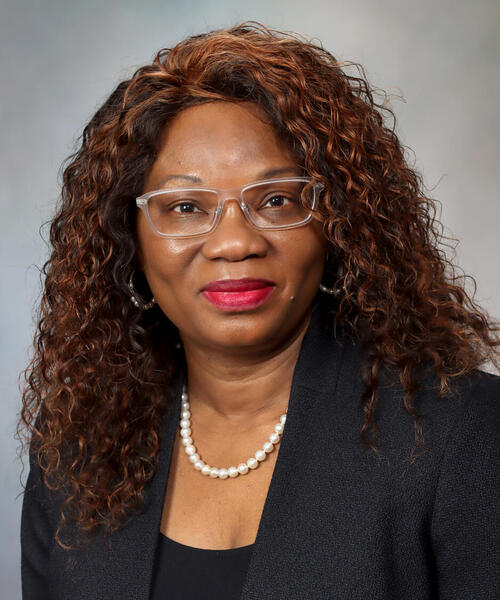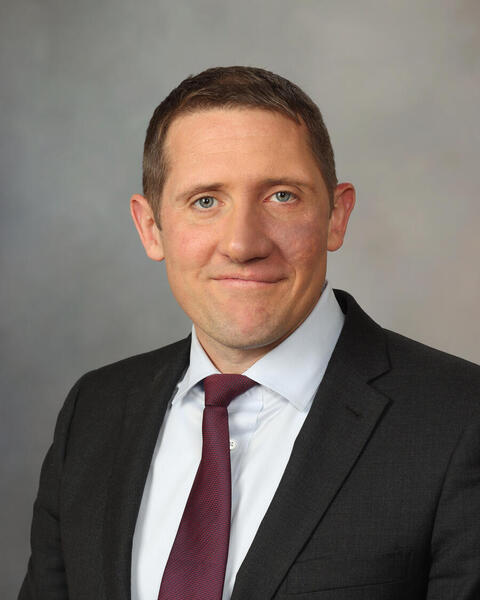Community Outreach & Engagement Research Services
The Mayo Clinic Community Outreach and Engagement Research Services (COERS) bring together the coordination of health equity and community engagement in research resources across all Mayo Clinic locations. COERS is co-led by Folakemi Odedina, Ph.D., and Mark Wieland, M.D.

Dr. Odedina is an experienced health equity researcher with 30 years of health disparities and community-engaged research (CEnR) expertise with a specific research focus on prostate cancer disparities in Black men throughout the United States and internationally.

Dr. Wieland is an internal medicine physician and the Chair of the Division of Community Internal Medicine. He is an experienced health disparities and community-engaged researcher with 20 years of expertise collaborating with immigrant and refugee populations.
COERS is supported by staff located throughout all three Mayo Clinic locations –
- Arizona: The Arizona State University Health Futures Center
- Florida: The Mayo Clinic Community Health Collaborative in downtown Jacksonville
- Minnesota: The Bio Business Building at the Rochester campus.
COERS assists investigators and research staff by providing resources and services to facilitate and foster partnership and engagement between study teams and the communities we serve, to address disease burden in communities through health equity and community-engaged research studies.
COERS also engages communities through a variety of community outreach and community engagement in research initiatives. This includes, but is not limited to the following initiatives:
Community Engagement in Research Resources
Mobile Research Unit (MRU) (FL Only) The MRU is an RV-style vehicle that includes two exam rooms, equipment for lab tests, a private area for participant interviews, audio/visual technology for participant education, and a laboratory.
Community Engagement (CE) Studios CE Studios allow researchers to work directly with community members, patients, caregivers, and other individuals to get meaningful insight to enhance the study design, implementation, and dissemination of their research.
Community (Citizen) Scientist (CS) Program – By exposing community members to research and including them on our study teams, we are building trusting relationships and creating advocates who can help dispel myths about the research process and create a level of trust between Mayo Clinic Research and the communities we serve.
Community Advisory Boards (CABs) – CABs guide, advise, and participate in health equity and CEnR activities to ensure that community input is included in all research activities. The staff coordinates eight boards including:
- Three (3) Site-Specific Community Engagement in Research (CEnR) Advisory Boards that include diverse community members who live in cities where Mayo Clinic is physically located.
- Three (3) Site-Specific Cancer Advisory Boards that include diverse community members who are cancer survivors, advocates, and/or caregivers, located where Mayo Clinic Comprehensive Cancer Centers are physically located.
- The Midwest Healthy Nations Advisory Board is an advisory board in the Midwest that provides guidance, input, and feedback on all health equity and community engagement in research initiatives in Native American communities in the Midwest.
- The Florida Women’s Health Advisory Board is an advisory board in Florida that provides guidance, input, and feedback on health equity and community engagement in research initiatives focused on women’s health in Florida.
Community Outreach/Health Education Resources
Community Partners We have over 175 partnerships throughout the communities we serve. We partner with community organizations (including faith-based, community-based, patient advocacy/support, health departments, etc.) to develop engagement and outreach activities, including health fairs, health education seminars, grocery distributions, etc.
Evidence-Based Community Interventions We work in partnership with communities to develop and implement community interventions that specifically aim to address the cancer burden in the communities we serve. The overall goal of these programs is to increase the uptake of primary and secondary cancer prevention and risk reduction behaviors/strategies.
Mobile Community Outreach We collaborate with community partners to host on-site health education events, mobile food pantries, interactive sessions with providers, etc.
Virtual Health Education Our staff hosts virtual outreach events using virtual platforms to increase access to health information, including a Cancer Conversations series with providers and cancer survivors; women’s health events; nutrition and fitness events, etc.
Community Gardens Community gardens provide neighborhoods with the opportunity to promote healthy nutrition, improve overall wellness, and create stronger communities. In addition to promoting healthy eating behaviors, community gardens also provide a forum for community members to gather and get information about topics ranging from disease prevention to healthy behaviors.
Contact Us
![]()
 Connect
Connect

 Connect
Connect